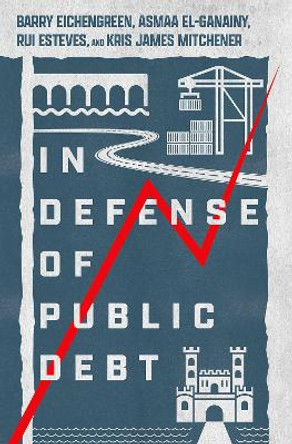Description
Provides new analysis of the spread of central banking beyond Western Europe and North America in the 1920s and 1930s.
About the Author
Barry Eichengreen is George C. Pardee & Helen N. Pardee Chair and Distinguished Professor of Economics and Political Science, University of California, Berkeley, Research Associate of the National Bureau of Economic Research and Research Fellow of the Centre for Economic Policy Research. Andreas Kakridis is Assistant Professor of Political Economy and Economic History at Panteion University in Athens, Greece. Scientific Advisor to the Historical Archives of the Bank of Greece. Member of the Academic Council of the European Association for Banking and Financial History (eabh). Trained in Oxford and Athens.
Reviews
'Central banks are vital to modern economies. They set monetary policy, supervise banks, and foster financial stability. Financial markets hang upon their every word. This volume presents the fascinating stories of central banks that were born amidst the economic turbulence of the inter-war period. These institutions, mostly in emerging and developing economies, have received far less attention than their older brethren. This book fills that gaping hole in the literature admirably.' Richard Grossman, Andrews Professor of Economics, Wesleyan University
'As we enter a new era for central banking it is crucial we understand how these institutions emerged and coped with previous ruptures in the global economy. The great depression of the interwar years was a formative time for central banks in many countries, especially due to experiments in central bank cooperation. This volume offers fresh insights into how central banks coped with crisis by focusing on less well understood examples in Eastern and Southern Europe, India and Australasia. The result is a fascinating volume that emphasises the variety of central banking practice in these crucial years.' Catherine R. Schenk, Professor of Economic and Social History, St. Hilda's College, University of Oxford
'Central banks in the 21st century have their work cut out for them as they cope with the classic exogenous shocks of disease, war, and famine within the global economy. The historians gathered by Barry Eichengreen and Andreas Kakridis in this volume make us hope that central bankers can learn from history, especially their own history, to cope with their challenges today.' Larry Neal, Emeritus Professor of Economics, University of Illinois
Book Information
ISBN 9781009367554
Author Barry Eichengreen
Format Paperback
Page Count 350
Imprint Cambridge University Press
Publisher Cambridge University Press








